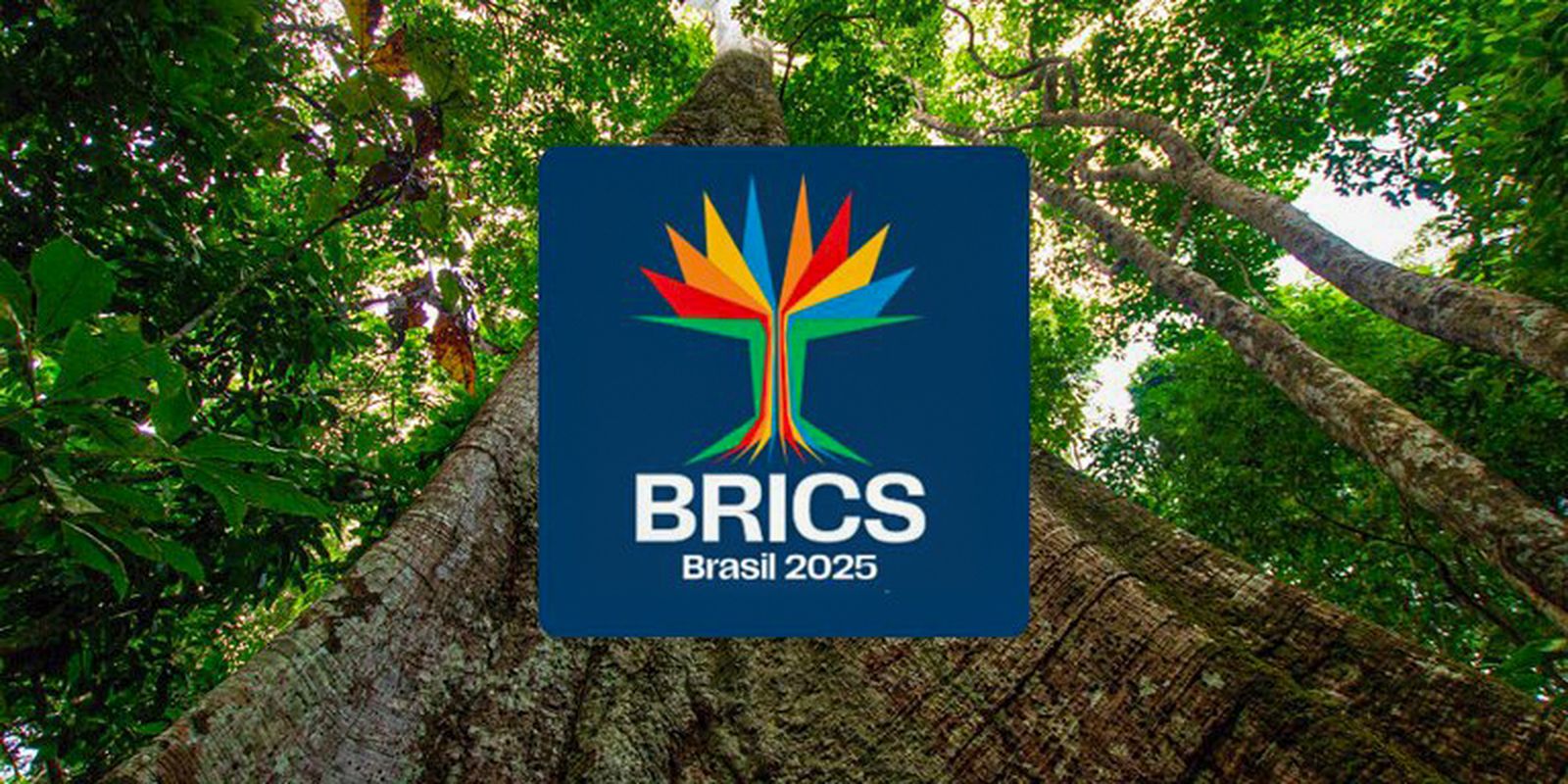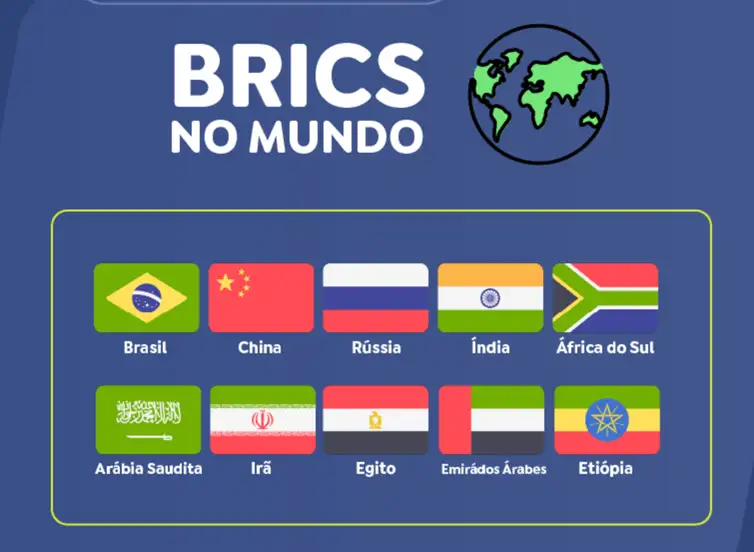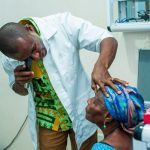The sum of the nine countries that are already formally part of the Brics, in addition to Saudi Arabia, account for more than 40% of the global population, with a growth trend above the global average in the next decade. Furthermore, they account for 37% of the world economy, according to the Gross Domestic Product (GDP) criterion by purchasing power, according to the World Economic Forum.
Created in 2009, Brics originally brought together, in addition to Brazil, China, India and Russia. South Africa was the fifth country to join, in 2011, and, last year, five more countries joined the bloc: Iran, Egypt, United Arab Emirates, Ethiopia and Saudi Arabia. Still in the confirmation process, Saudi Arabia has participated in the group’s meetings, according to Itamaraty.
Size of Brics
The nine countries that are already officially part of the BRICS, in addition to Saudi Arabia, currently account for more than 40% of the global population, with a growth trend above the global average in the next decade. Furthermore, they account for 37% of the world economy, according to the Gross Domestic Product (GDP) criterion by purchasing power, according to the World Economic Forum.
These countries hold 26% of world trade, according to the World Trade Organization (WTO). And, according to the Ministry of Mines and Energy (MME), the group concentrates 44% of the planet’s oil reserves and 53% of its natural gas reserves. Not only that, today they produce 43% of the world’s oil and 35% of the gas.
Seventy-two percent of the world’s rare earth reserves are in these ten territories, as is 70% of global coal production. Russia and Brazil have the largest freshwater reserves on the planet.
In military terms, the group has at least three nuclear powers (Russia, China and India).
“The Brics in fact have a strong economic and military weight, which is increasingly demanding a political weight that is commensurate with the resources they hold”, says the director of the Brics Policy Center and professor at the Institute of International Relations at the Pontifical Catholic University from Rio de Janeiro (PUC-Rio), Marta Fernández.
The term Bric, an acronym for the original members, was created by economist Jim O’Neill in 2001 to refer to the group of countries that were considered promising emerging markets at the beginning of the millennium. In later interviews, O’Neill said he never thought of Brics as a political group.
In 2006, however, the four original members would meet for the first time on the margins of the United Nations General Assembly. The 2008 global financial crisis would provide a reason for the group to decide to meet annually to seek a change in the global governance system.
Worldwide influence
“At its origins, it was very clear that it was an informal organization, but that it had a reformist agenda for the international order. The Brics emerged in the context of a crisis in Western countries, with the financial crisis of 2008. Since the first summit, the demand for reform of the UN, the International Monetary Fund, the World Bank has been in the declarations”, explains the professor at the Center of Studies on the Brics Countries at the Fluminense Federal University (UFF), Evandro Carvalho.
In this context of economic crisis, arising from an economic and political model led by Western countries (United States and European Union), the Brics begin to demand more influence on the world’s destinies.
“These countries understood that they had an undersized weight in international governance, whether in terms of presence in international organizations or in defining the direction of the international economy”, highlights the director of the Institute of International Relations at the University of São Paulo (USP), Pedro Dallari.
In the wake of criticism of the management of large international banks, in 2014 the Brics created their own financial institution, the New Development Bank (NDB), which supports infrastructure and sustainable development projects in developing countries. “By creating an international organization, Brics demonstrated its ability to achieve on a very important front,” says Carvalho.
Furthermore, as a way of reducing dependence on the dollar, the United States currency, in international trade negotiations, the BRICS defends the use of local currencies in trade between its members.
“The Brics are, in some way, generating concerns in the United States, in relation to maintaining the dollar as the reference, hegemonic currency. Not that Brics has any intention of replacing the dollar. The idea is that Brics wants to have the right to trade in different currencies. This has to do with the construction of a multipolar world, where there are several centers of power”, explains Marta.
Limitations
According to Dallari, outside of the discussion of global governance reform, there is little convergence between the group’s countries, since they have very different commercial interests and ideological values.
“BRICS is a forum for agreeing positions. Brics accomplishes much more in the sense of an arrangement for a geopolitical interest and strengthening multilateralism than in terms of the actual results it will have as an ‘economic’ bloc.”
Furthermore, Dallari says that there are also differences in relation to major global issues, such as wars in the Middle East and Ukraine, global warming or even the containment of pandemics, such as Covid-19.
“By no means can Brics be seen as a bloc capable of acting cohesively on the major issues of our time, especially because, on many of these issues, these countries oppose each other, they are antagonists”, highlights the USP professor. “Apart from this more abstract desire to reform multilateralism, I see very little effectiveness in the Brics’ actions today.”
Evandro Carvalho adds that, in international trade, for example, some are even competitors in some areas. He also highlights that even though it is just an informal group, Brics lacks a minimum institutional structure, such as an executive secretariat, that could provide more transparency and concentrate the group’s initiatives.
“If you want to look for information about any Brics initiative, there isn’t even a website that focuses on this. You will only find it on the websites of last year’s summits, the year before. There is no Brics website that contains information, emails, how to access the information, who we turn to if we want some information for a survey, for an interview”.
Despite the limitations of the informal group, Marta Fernández believes that Brics has a “material strength, in terms of resources, population, critical minerals, oil production, but increasingly it also has a very symbolic strength, because, in some In this way, it has represented an alternative to the way of organizing the world, of organizing global governance, largely based on the idea of the global south”.
“BRICS has become almost like a spokesperson or the biggest voice for the global south, within this function of reorganizing the global order”, adds Carvalho.




















